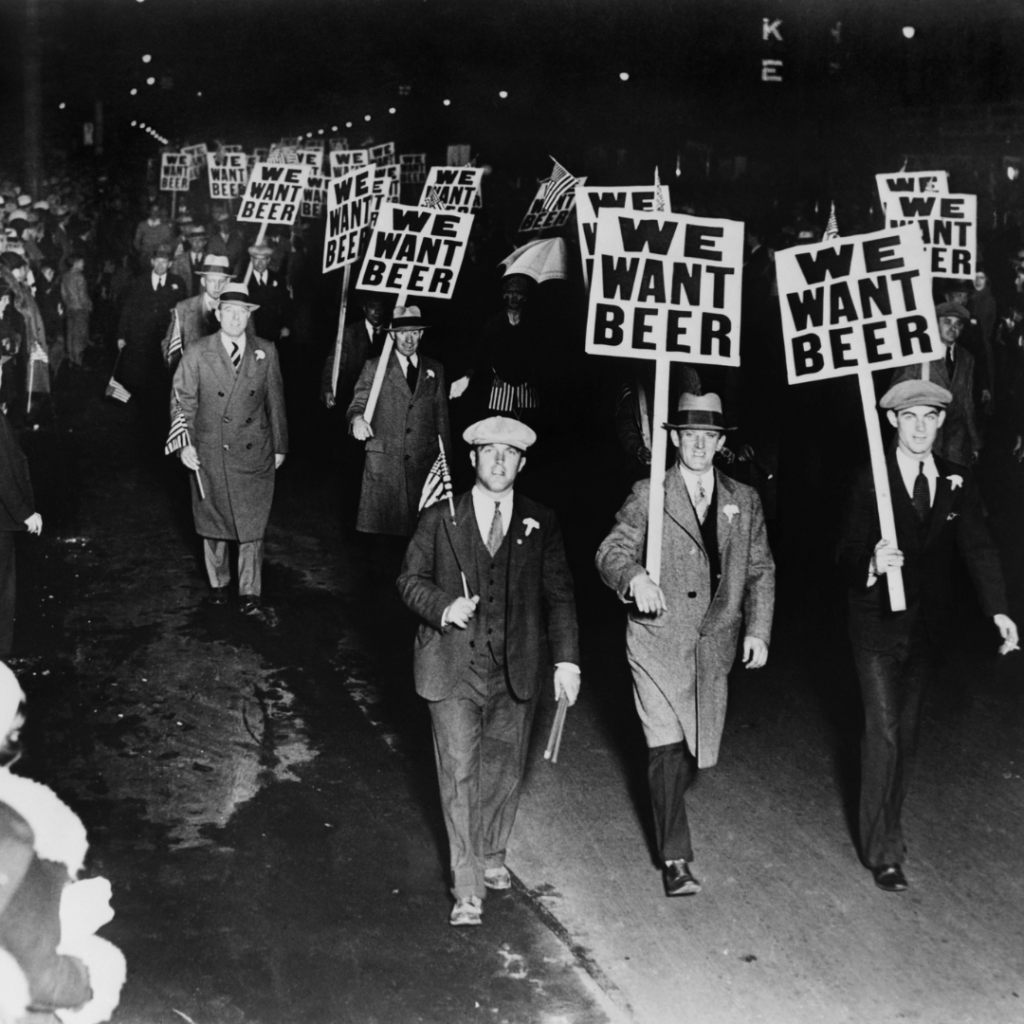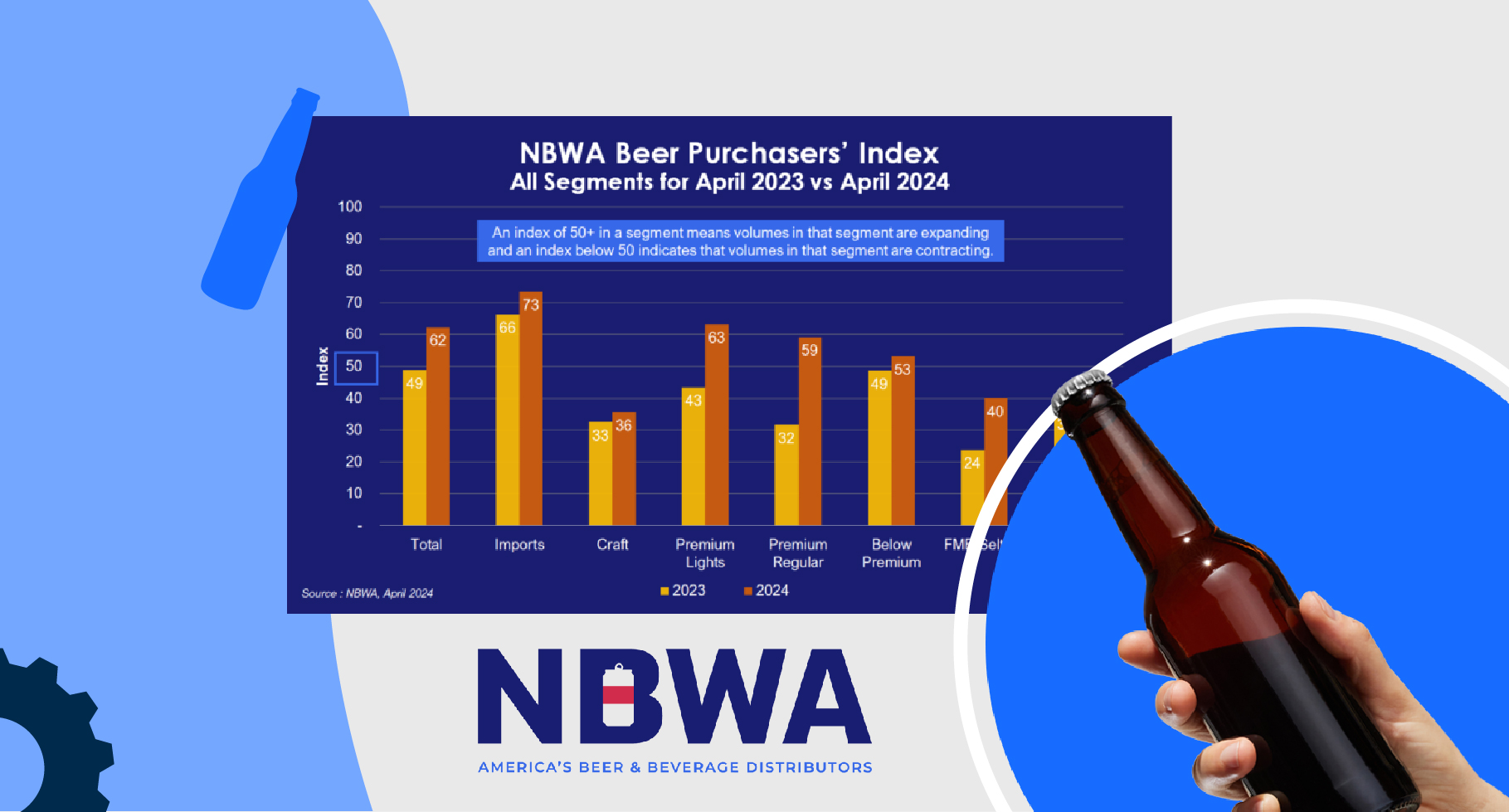Erik Schaeffer (Manager, Regulatory Affairs) contributed to this blog.
Today marks 90 years since the 21st Amendment was ratified, repealing the 18th Amendment and paving the way for the modern three-tier system and alcohol regulatory framework. The end of Prohibition allowed states to begin adopting their own laws around alcohol distribution and consumption. Since then, over 20,000 licensed beverage alcohol wholesalers, including 3,000 independent beer wholesalers, have integrated themselves into the American economy. Fintech, along with the National Beer Wholesalers Association (NBWA) and Center for Alcohol Policy (CAP), celebrates this anniversary and the success of the 3-tier system.
Life Before the Three-Tier System
Life before Prohibition was much more deregulated, with both the distribution and sales of alcohol under one entity (otherwise known as a “tied-house” system). This system fostered unfair competition between the suppliers and retailers. There was also the temperance movement, which lobbied for abstinence from alcohol on moral grounds.
The CAP hosted a webinar with Mark Schrad, Ph.D., author of Smashing the Liquor Machine and Professor of Political Science at Villanova University, and Brannon Denning, Center for Alcohol Policy Advisor and Associate Dean and Professor of Law at Samford University’s Cumberland School of Law, to discuss the ramifications of both Prohibition and its repeal. During the conversation, Schrad highlighted that during his research, he found that many prohibitionists were more opposed to the trafficking of liquor and people profiting off a highly addictive substance that negatively affected marginalized communities. While the intention may have been to create a dry, sober nation, it led to increased bootlegging and a highly deregulated industry marked by organized crime, speakeasies, and illegal interstate trade, which is ironic because it only perpetuated this profiting in an even less regulated market.
Ratification Via State Convention
The 21st Amendment is the only one ever to be ratified by state convention as opposed to state legislature. When the Constitution was framed, it allowed conventions to bypass state legislatures in the ratification process. The theory was that the conventions would better represent the sentiment of registered voters and not bow to political influences as the legislators might.
The repeal of Prohibition, and more notably, the decision by Congress to defer to a ratification convention as opposed to state legislatures, ultimately established a better regulatory framework in which states controlled their own destiny with how they wanted to handle alcohol without any outside interference.
Another example of something good that came out of the 21st Amendment is protection from discriminating against out-of-state alcohol in favor of in-state alcohol to the benefit of in-state suppliers, which is a testament to the fairness of competition within the current three-tier system.
A Better Beverage Market for All
The current three-tier system accounts for alcohol suppliers, distributors, and retailers and is a much more structured way of protecting the interests of each involved party. It ensures more safety, control, and access throughout the journey from production to consumption.
“The three-tier system’s effectively regulated chain of custody keeps consumers safe and promotes competition and variety while ensuring revenue is collected in the form of excise and sales taxes,” said Craig Purser, President and CEO of NBWA.
NBWA attributes the 21st Amendment to the beer industry’s creation of nearly 2.4 million jobs and a $409 billion contribution to the American economy – roughly 1.6% of the U.S. GDP.
Without the 21st Amendment, it’s hard to imagine what the modernization of alcohol regulations and laws would look like. Luckily for alcohol distributors, suppliers, retailers, and consumers, the decision was made 90 years ago that set the nation down the path to where it is today.
Three Cheers for the 90th Anniversary of the 21st Amendment!





